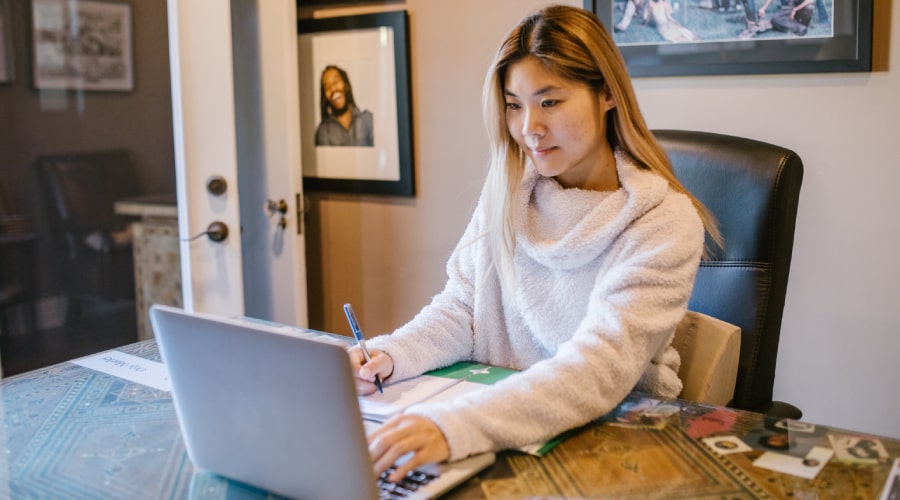settings
children
With Famly since
As we face down a much-discussed second wave in this pandemic, it’s more important than ever that we bring our teams together and make them feel valued, heard and respected.
But how can we help to respect, value and build development opportunities for our teams in a time when budgets are tight and pressures are high?
At N Family Club, we spent much of the first wave of the pandemic working through these problems, trying lots of new initiatives and ways of working. We wanted to help make our team feel as loved as ever, even if we weren’t able to interact with them in the same ways or offer them exactly the same opportunities.
Here are some of the things that worked really well for us, and we hope these changes will stay with us long after this pandemic is through.

Maximising online training and communication
Utilise your team’s new-found familiarity with digital interaction to find easier, quicker and cheaper ways to train and provide networking opportunities for them.
We embraced Zoom early on in lockdown for meetings, but have since conducted full team training on Spanish, yoga and dance online. For many of our team members, these online sessions give some increased flexibility, especially when trying to balance evening training with childcare.
Another thing the Early Years sector has done so well during this time has been creating a wealth of free and low cost online training opportunities. For our team, making use of these has been a great way to stay tuned in to the wider conversations and learnings across the Early Years sector.
These days, we do part of our induction training in a virtual conferencing format. We keep these sessions short, with some pre-reading and post work, to ensure we get the maximum impact. At the start, we were a little concerned about losing natural conversation and back-and-forth dialogue in these sessions — but using the break-out rooms functionality in video conferencing, we’ve seen our team still discussing and debating their ideas together.
We’ve maximised online platforms not just for training, but also for staying in touch with our team during the pandemic. Creating and sharing blogs, messages, pictures and videos has helped keep that team spirit alive, especially when we can’t see each other as regularly as we’d like.
Should some pandemic changes be for good?
Think through the processes that you’ve cut during the pandemic — Are there things that weighed your team down, and detract from their time with children in the rooms? Are there additional bits of paperwork that you could make do without? Strip it all back!
At N, we started to think about this ahead of Covid, but our thinking really crystalised during the pandemic. We stripped back the amount of ‘logging’ things that we did in nurseries, such as logging meals for older children, and made sure our observation, assessment and planning process was as streamlined as possible. We stopped linking our observations to EYFS outcomes — we changed our focus to showcasing a child’s learning, rather than creating arduous box-ticking for our team.
More recently we took our Family Club online, and have been offering both virtual family events and our parenting talks online. Much like with the team, we’ve found virtual talks to be a real hit with parents, as it makes it easier for them to balance attendance with hectic work schedules, family time and bedtime routines.

Encouraging educators to share their passions
Now’s a great time to help your team explore new skills and try out new areas of growth, by offering specialist educator tracks, such as becoming a specialist in a specific area of curriculum.
At N, we developed specialisms quite early on, partly as a response to the interests of our team at the time. Zoe, one of our first team members, had graduated with a degree in illustration, and felt that she could bring a huge wealth of artistic experience to the children’s everyday learning. When we opened our second nursery, we worked with her to design her own art studio space, and have since rolled this out at our other nurseries, giving all of our art specialists the opportunity to connect and develop their practice together. Zoe’s even running a Zoom portrait class for our team as part of a wellbeing focus week.
Finding low-cost, high-impact perks
Have a think about whether there are any free or low-cost programs or benefits that your team would really appreciate during these hectic times.
If your setting is able to, you could offer a cycle-to-work scheme, which enables your team to save money on transport, while staying fit and healthy during the pandemic. Or, you could also really reduce the hours your team spends commuting by offering more flexibility and options around their working hours. We started offering a range of flexible shift patterns, including 3- and 4-day weeks to reduce travel time throughout the week. That’s proved a great success with many of our team members.
New ways to celebrate your team, and recognise their value:
Respect their individuality and give your team the freedom to express themselves
In a heavily-regulated sector like ours, it’s sometimes hard to find opportunities to promote autonomy in your team and celebrate individuality. But that doesn’t mean it’s impossible! At N, we have a number of ways of recognising our team members’ unique qualities & abilities:
- At N, we’ve always been keen to let our team express themselves. We don’t have uniforms, rules around hair colour or require educators to cover tattoos, but simply trust them to wear something appropriate for work. Just as we encourage the children at nursery to understand and celebrate their differences, we want our team to have the freedom to express theirs.
- We look to our teams for help on how they think their settings, and the wider group should evolve. We regularly ask for feedback, and we make sure that we actually listen to it and act on their suggestions. One of our team members who is particularly passionate about the environment, for example, has been very influential in directing our choice of energy suppliers and helping us develop procedures and the design of our nurseries to reduce our environmental impact. Other team members have come together to form our diversity and inclusion group, who are leading the way on defining how N uncovers and remedies conscious and unconscious biases within our group.
- We make personal development a core part of the supervision process, offering help and advice to support the team’s wellbeing, as well as their professional development.
Respecting the status and knowledge of your team members as professionals
July’s ‘Forgotten Sector’ report from the Early Years Alliance made for pretty uncomfortable, although not altogether surprising, reading for many of us in the sector.
It made clear the challenges our Early Years settings face: Low pay, long hours, and lacking funds for training — all while facing down the pressures and havoc of the coronavirus.
All of us working in Early Years know that we have the opportunity to impact a child’s education and life prospects in unparalleled ways. We all understand the importance of the work we do, and it’s crucial that we help our teams communicate this to the world. At N, we call our team “Educators”, and celebrate them as education professionals. We present their experience with pride to parents on our team’s online profiles and biographies.
As we work for more recognition from outside the sector, it’s critical we give one another recognition from within. We want to lead our team as professionals, and encourage them to set their own development goals to further their learning. We find that this creates a sense of value and belonging that can weather even the strongest of storms.
The big ideas
Top tips from Alphabet House
Get top tips from a setting just like yours. Hear from Alphabet House on why and how they use Famly - and why they’ve never looked back.
Read their story








